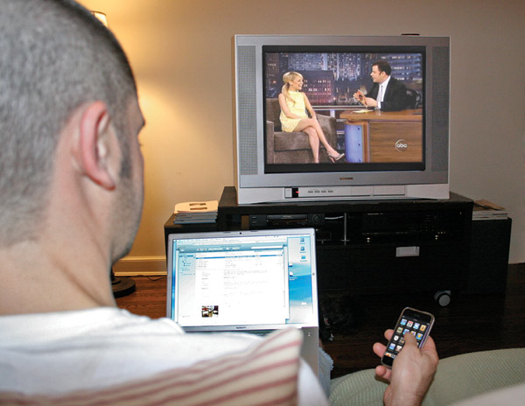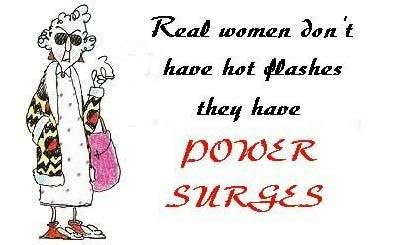I've been contemplating the notion of "wholeness" lately in terms of who we are as people. When I think of someone who's 'whole', I think of someone who doesn't feel fragmented or dysfunctional; someone who feels their basic needs have been met or are being met.
I think of someone who feels "rounded out" as a human being - someone who feels loved; emotionally secure and stable. Someone who does not need to obsess over whether or not he (I'm using 'he' here to represent he/she) is socially acceptable or not. . . that person has arrived at a place of being content with himself. He is set free from worrying over what other people think of him - it is no longer of crucial importance.
- intact: containing all the elements properly belonging;
- complete: uninjured or unharmed; sound;
- pertaining to all aspects of human nature, esp. one's physical, intellectual, and spiritual development: education for the whole person.
But is it possible to be emotionally whole in a culture that is so broken?
Depending on your age, you may remember a time in our society that was very different. In the late 60s, the parents of a girl in my elementary school were getting divorced.
I was stunned. Nobody I knew in our small town had ever been divorced or had parents who were divorced.
I remember avoiding this poor girl, and some of the other kids teased her because of her parents' divorce - how cruel! But it was somewhat of a scandal in our community, in my mind, anyways. Parents just didn't do that in those days.
By the 80s, however, it was another story, and divorce had gone mainstream. It had begun filtering down into home after home.
In the 90s, I found myself volunteering as a Pastoral Animator in the same high school I had attended as a teen. I began teaching Moral & Religious Education classes to Grades 7 through 11. As part of my course content, I talked with the students about issues pertinent to morality, self-esteem, and so on.
We discussed what they thought made up the foundation of good self-esteem & a sense of emotional stability, including family. And in the classes where I asked kids to indicate which ones still had their "original parents", only half put up their hands. This a mere 20+ years after I had encountered divorce for the very first time.
In the 90s, I found myself volunteering as a Pastoral Animator in the same high school I had attended as a teen. I began teaching Moral & Religious Education classes to Grades 7 through 11. As part of my course content, I talked with the students about issues pertinent to morality, self-esteem, and so on.
We discussed what they thought made up the foundation of good self-esteem & a sense of emotional stability, including family. And in the classes where I asked kids to indicate which ones still had their "original parents", only half put up their hands. This a mere 20+ years after I had encountered divorce for the very first time.
That's not to say that those of us (and I am one) from broken homes cannot achieve emotional wholeness or enjoy a sense of good self-esteem. But from my experience, a broken home has made these ideals more difficult to achieve. For much of my adult life, I have felt broken in various ways, as I'm sure many of you do, too.
Sometimes dysfunction seems to be a regular part of who we are as human beings. And it's an ongoing process to embrace emotional wholeness and to maintain it.
Do you feel whole? Or fragmented? Do you feel as though your emotions were being churned up by a backhoe as you were growing up? Are you from a family that could not offer you the foundation of serenity you craved?
Or are you one of those fortunate ones who came from a stable home environment, full of love, acceptance and encouragement?
Or are you one of those fortunate ones who came from a stable home environment, full of love, acceptance and encouragement?
IMHO (for those of you not completely familiar with email jargon, that's an acrostic for "In My Humble Opinion"), one of the keys to our emotional wholeness is a sense of community. Hunh. Good luck with that if you are a North American and your ethnic background is WASP (another acrostic! White Anglo-Saxon Protestant) - or I guess we could also say WASC - White Anglo-Saxon Catholic (I made that last one up!)
We haven't been doing community for a very long time in our society.
We haven't been doing community for a very long time in our society.
Conversely, I find that many of the sub-cultures have wonderful, vibrant communities, chock-full of aunts, uncles, cousins, nieces & nephews. The Italian & Greek friends I know - from what I can see - rarely experience lonliness, along with many of my Jewish, Asian & Middle Eastern friends, who seem to be very strongly connected to their relatives.
But it seems to me that the "less ethnic" and "more white" a North American is, the more polarized he is likely to be. It's very sad to say that for many of us, we do not possess a sense of family nor of community.
Increasingly, North Americans are feeling isolated and alone, with no strong sense of family ties. And yet living in & feeling part of a community is one of the key ingredients that makes for emotional wholeness. Remove that, and a lot of us feel disconnected, vague and just not good inside ourselves.
What I've also noticed is that every time a new piece of technology is created and becomes a mainstay in the North American home, more of our quality time with others goes out the window.
We brought TVs into our homes and people stopped talking to each other, sitting side by side, staring at the box.
We introduced computers to our homes, and people now stare at the screen for hours at a time (another box), often communicating with others by keystroke rather than face-to-face.
Introduce an ipod, an iphone, or a what-have-you into the mix and watch people vanish into their own virtual worlds, oblivious to their surroundings or to people seated inches away from them - on a bus, for example. A total bubble effect for everyone with one of these techno-toys (I am one, unfortunately, addicted to my Palm Pilot).
And so I ask myself:
- How on earth are we going to ever be whole if we continue to remove ourselves from meaningful human contact?
- How can we experience emotional wellness if we cannot afford the time to sit, relax and interact with each other?
- How can we continue to foster empathy towards one another if we do not feel a connection to them? Do we honestly think road rage would occur if we all knew each other well? It is much easier to be cruel to a stranger than to someone we know we'll have to face again the next day . . .
Anyways, these are some of the things I've been pondering . . . being swept "forward" by the "advances" of our culture.
Today, I'm thinking that some of those advances are bringing us back into the Dark Ages.












